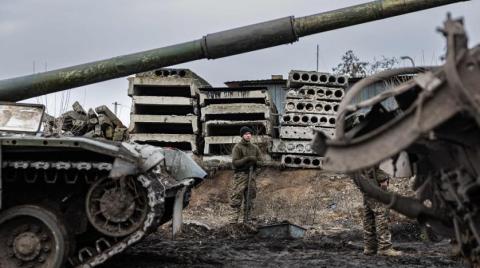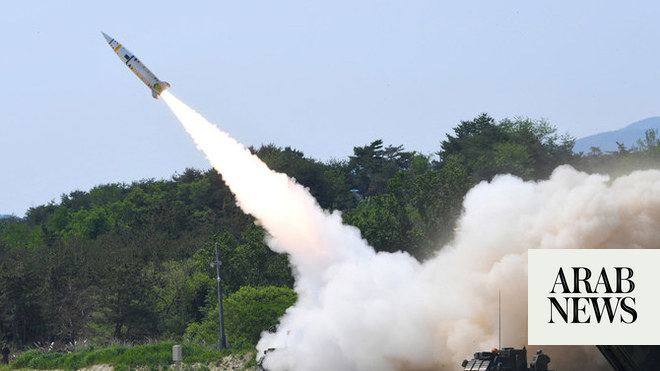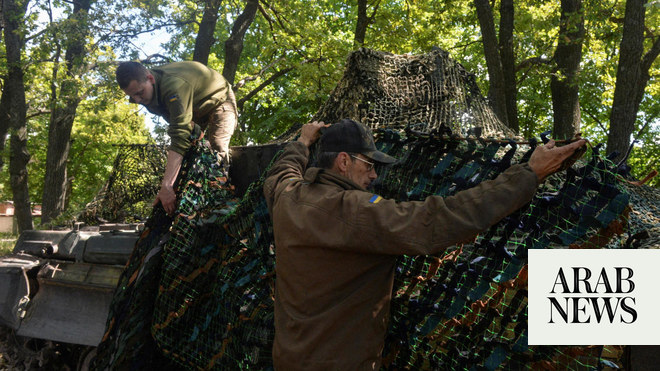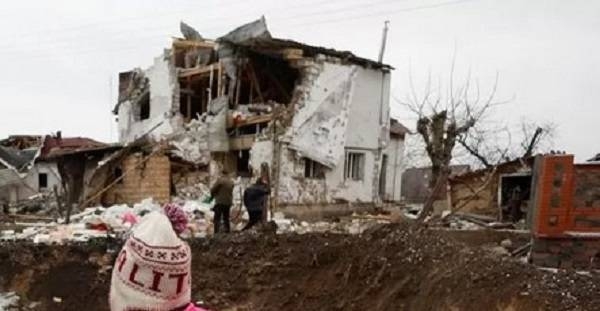
The Russian foreign ministry said on Friday that a molotov cocktail had been thrown at the the country’s consulate in the Ukrainian city of Lviv and that it had formally protested about the attack, which it described as an act of terrorism.
The ministry summoned a Ukrainian official and demanded apologies from his country’s authorities.
Ukrainian police in Lviv said they had launched an investigation into the incident, which they referred to as hooliganism.
The incident comes as tensions soar over a buildup of Russian troops near the border with Ukraine that has stoked fears of an invasion.
The Kremlin also said on Friday that it expected the US to respond next month to its request for security guarantees that preclude Nato’s expansion to Ukraine.
The Russian president, Vladimir Putin, had urged the west on Thursday to meet the demand immediately, accusing the US and its allies of maintaining a military presence “on the threshold of our home”.
Moscow submitted draft security documents last week demanding that Nato deny membership to Ukraine and other former Soviet countries and roll back the alliance’s military deployments in central and eastern Europe.
“To discuss de-escalation, we expect our opponents in Washington to provide specific answers to our proposals in January,” the Kremlin spokesperson Dmitry Peskov said during a Friday conference call with reporters.
The US president, Joe Biden, told Putin in a video call earlier this month that Russia would face severe consequences if it attacked Ukraine.
Moscow has denied it plans to launch an attack but has described Nato expansion and weapons deployment in Ukraine as a red line.
During a marathon annual news conference on Thursday, Putin said US-Russia talks expected to start in Geneva next month were a positive move, but that Moscow expected them to produce quick results.
The US and its allies, however, have said they will not give Russia the kind of guarantee on Ukraine that Putin wants. One of Nato’s key principles is that membership is open to any qualifying country. US officials are conferring with European allies in advance of the Geneva talks.
The Ukrainian foreign minister, Dmytro Kuleba, said on Friday that his country must be part of any Nato security talks with Russia.
“Euro-Atlantic security is at stake in Ukraine, therefore, Ukraine should be part of security consultations on the matter,” he tweeted. “We support the idea of the US, the EU, Nato talking to Russia as long as the primary topic is ending the international armed conflict, Russia’s war on Ukraine.”
Peskov rejected western concerns about the Russian troop buildup. He said the country was entitled to deploy its military wherever it considered necessary on its territory, and presented the recent movements as a defensive response to provocations from the west.
“Whatever Russia does with its troops, it does that on its own territory and we can’t allow anyone to challenge that sovereign right,” he said. “Russia takes certain action to move and redeploy its armed forces on its territory in view of unfriendly moves by our opponents from Nato, the US and some European countries that have made unambiguous maneouvres near our borders, conducted reconnaissance flights and deployed warships.”
“It causes our deep concern and forces us to take certain measures to ensure our security.”
Russia annexed Crimea in 2014 and threw its support behind a separatist rebellion in eastern Ukraine. More than 14,000 people have been killed in the fighting, which has devastated also Donbas, Ukraine’s industrial heartland.
Putin said earlier this week that Russia would have to take “adequate military-technical measures” if the west continued its “aggressive” course.
On Friday, he hailed another successful test of a new hypersonic weapon. A salvo of Zircon cruise missiles had been fired “flawlessly”, he said. “This is a big event for the country and a major step in strengthening Russia’s security and enhancing its defence capability.”
Friday’s launch was the latest in a series of tests of Zircon, which Putin has said is capable of flying at nine times the speed of sound to a range of more than 1,000 kilometres (600 miles). The missile is expected to enter service with the Russian navy next year and arm its cruisers, frigates and submarines.
Putin voiced concern last month that Nato could use Ukrainian territory to deploy missiles that would be able to reach Moscow in just five minutes and said Zircon would give Russia a comparable capability.
“It would also need just five minutes to reach those who issue orders,” he said.












